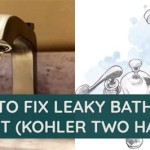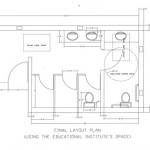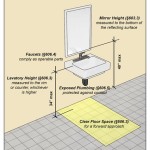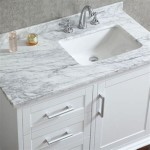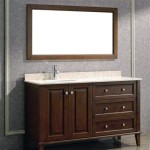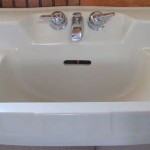Bathroom Sink Losing Water Pressure: Causes and Solutions
If you're facing the frustration of low water pressure in your bathroom sink, it's time to pinpoint the cause and find an effective solution. Here's a comprehensive guide to help you troubleshoot and resolve this common plumbing issue:
1. Clogged Aerator
The aerator, a small device usually located at the tip of the faucet, helps mix air into the water stream. Over time, it can accumulate mineral deposits and debris, leading to a reduction in water flow. To clean the aerator:
- Use a wrench to unscrew the aerator from the faucet.
- Soak the aerator in white vinegar or a commercial cleaner overnight.
- Rinse the aerator thoroughly and reattach it to the faucet.
2. Faulty Faucet Cartridge
The faucet cartridge, which controls the water flow and temperature, can wear out over time. A faulty cartridge can restrict water flow, resulting in low pressure.
To replace the faucet cartridge:
- Turn off the water supply to the sink.
- Use a wrench to remove the faucet handle.
- Unscrew the cartridge using a cartridge puller or wrench.
- Replace the cartridge with a new one and reassemble the faucet.
3. Corroded Pipes
Old or corroded pipes can narrow, restricting water flow and causing low pressure in the sink. If you suspect corroded pipes, it's recommended to call a plumber for professional assistance.
4. Blocked Drain
A clogged drain can create backpressure in the pipes, leading to reduced water pressure at the sink. Try using a drain snake or chemical drain cleaner to clear the blockage.
5. Low Water Pressure in the Main Line
If all other solutions fail, the low water pressure could be caused by a problem with the main water supply line. Contact your local water utility company to report the issue and request a professional inspection.
Additional Tips
- Check if your water pressure is low at otherfixtures in the house. If it's not just the sink, the problem could be with the main water supply.
- Avoid using harsh chemicals when cleaning your sink, as they can damage fixtures and contribute to corrosion.
- If you're not comfortable performing the repairs yourself, don't hesitate to contact a licensed plumber for assistance.
- Regular maintenance, such as cleaning the aerator and replacing the faucet cartridge periodically, can help prevent low water pressure issues in the future.

Faucet Has Low Water Pressure After Repair Fix

4 Common Reasons Your Bathroom Water Pressure Is Low Reichelt Plumbing

Low Water Pressure In The House Causes And Solutions Forbes Home

Why Is My Bathroom Sink Water Pressure Low Hometalk
7 Reasons Why Your Kitchen Sink Water Pressure Is Low Lee S Air

How To Fix Low Water Pressure In Faucet

What Causes Low Water Pressure Home Matters Ahs

Why Is My Water Pressure So Low

How To Fix Low Water Pressure In A Faucet

How To Test Water Pressure At Home Living By Homeserve


